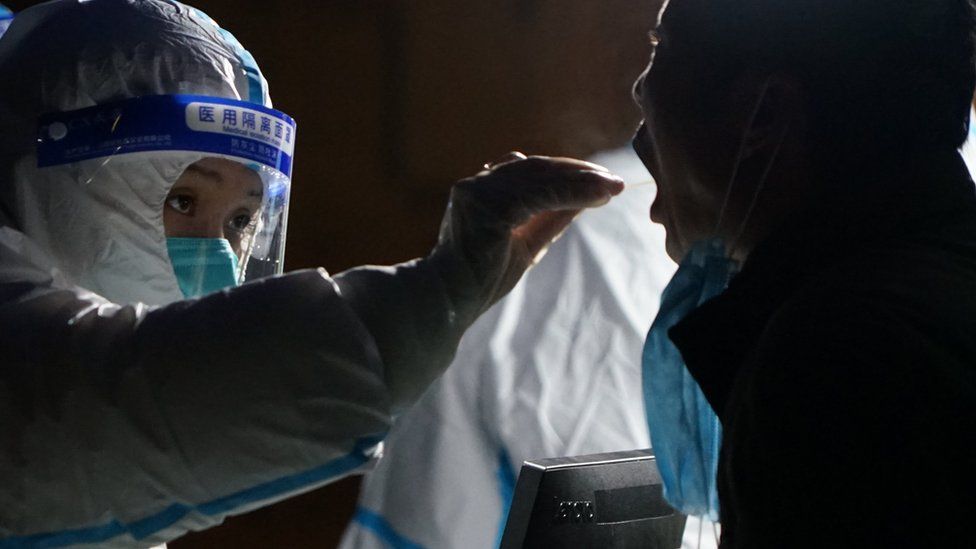China has put a second city into total lockdown after just three asymptomatic Covid cases were discovered.
Yuzhou – which has a population of 1.1 million – saw its transport system shut down and all but essential food stores closed overnight.
It follows a similar lockdown in Xi’an, where 13 million have been confined to their homes since 23 December.
The strict measures come ahead of the Lunar New Year and the Winter Olympics due to be held in Beijing.
With exactly a month to go until the Games start, foreign ministry spokesman Wang Wenbin assured reporters China had “formulated an efficient and highly effective defence system”.
As part of this system, thousands of staff and volunteers started entering a bubble on Tuesday, which will see them have no physical contact with the outside world in order to limit the spread.
Participants and international media arriving the cover the Games will also enter the bubble on arrival in China, where they will remain for the duration of their stay.
The carefully managed bubbles fit with China’s “Covid-zero” policy, which has seen it focus on stamping out the virus rather than live with it over the past two years.ADVERTISEMENT
In Yuzhou, some 700km (434 miles) south-west of Beijing, officials said that “to curb and quash the epidemic within the shortest amount of time is a high-priority political task” for both citizens and government employees.
All residents were told to remain indoors, with only those involved in containing the disease allowed to leave.
A similar policy has been in place in Xi’an, in western China, for almost two weeks. It reported 95 symptomatic cases on Monday, down from a peak of more than 150 per day at the height of the outbreak, news agency Reuters reports.
But while the strict lockdown appears to reducing case numbers, it has caused other issues. Social media posts show how residents have been forced to barter supplies amid worries over food shortages.
“People are swapping stuff with others in the same building, because they no longer have enough food to eat,” a resident surnamed Wang told Radio Free Asia. The news outlet also reported that another man had wanted to trade a smartphone and tablet for rice.
Source: BBC



















































